
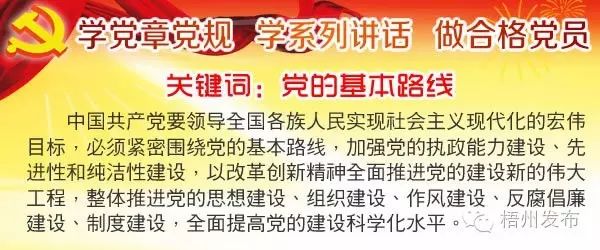
On September 21, a suspected food poisoning incident occurred at a restaurant in the urban area of Cenxi City. Patrons who consumed the restaurant’s self-infused medicinal liquor began to experience symptoms such as numbness in the hands, feet, and mouth, as well as vomiting. This incident resulted in 22 individuals suspected of food poisoning, with one person being treated at the hospital on the same night (21st) and later discharged without major issues; the remaining 21 were hospitalized at Cenxi People’s Hospital, all male patients. As of September 25, 20 have recovered and been discharged, while one remains hospitalized. This patient has stable vital signs and has shown improvement, and if there are no other complications, they are expected to be discharged soon. The incident is still under further investigation.
Infusing medicinal liquor is not unfamiliar to the citizens of Wuzhou, with a variety of Chinese medicinal materials used for infusion, ranging from common herbs like Du Zhong (Eucommia), Ba Ji Tian (Morinda root), and Gou Qi Zi (Goji berries) to toxic snakes, insects, or even owls. However, the actual efficacy of these medicinal liquors has yet to be conclusively determined.
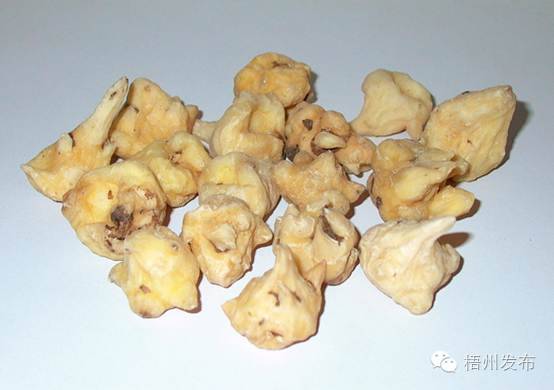 Raw Aconite (Image from the Internet)
Raw Aconite (Image from the Internet)
According to relevant information, Aconite, also known as Wu Tou or Fu Pian, has aliases such as Cao Wu, Yan Wu Tou, E Er Hua, Tie Hua, and Wu Du. It is primarily produced in Sichuan, Hubei, and Hunan provinces. It is processed into various forms including Salt Aconite, Black Aconite (He Shun Pian), White Aconite (Bai Fu Pian), Light Aconite (Dan Fu Pian), and Processed Aconite (Pao Fu Pian). It belongs to the category of warming interior medicines. Its functions and indications include reviving yang, rescuing from reversal, supplementing fire to assist yang, dispelling cold and alleviating pain, treating cold pain in the heart and abdomen, edema from dampness, and pediatric convulsions. Dr. Xu Yonghui, a TCM physician currently practicing in Wuzhou, explains that raw Aconite is highly toxic and is rarely used in traditional Chinese medicine. Even the processed Aconite retains some toxicity, and TCM prescriptions typically avoid high doses. “From a TCM perspective, Aconite is hot in nature and has heat toxicity, which can be effective for those with yang deficiency. Since liquor is also warming, infusing raw Aconite in liquor can significantly increase its toxicity,” Dr. Xu states. Furthermore, even when using processed Aconite, caution is necessary; prolonged boiling for over 2 hours can reduce its toxicity. Dr. Xu also mentions that TCM practitioners often add Zhi Gan Cao (Honey-fried Licorice), Shan Yu Rou (Cornus fruit), and Gan Jiang (Dried Ginger) to counteract the toxicity of processed Aconite. Despite the warning that “all medicines have some toxicity,” it has not diminished the preference of people in Guangdong and Guangxi for their homemade medicinal liquors for health benefits, used for internal nourishment and strengthening, as well as for external injuries. It is common to find various medicinal liquors in the homes of Wuzhou citizens. It is reported that besides raw Aconite, the following commonly used infusion materials also possess toxicity:
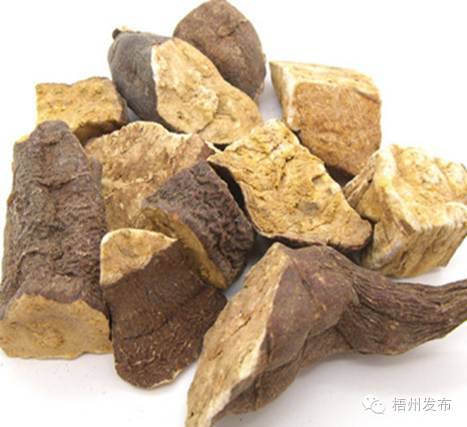 Raw He Shou Wu (Image from the Internet)
Raw He Shou Wu (Image from the Internet)
He Shou Wu, also known as Ye Miao, Jiao Teng, Jiao Jing, Ye He, and Di Jing, resembles a human shape and is known for promoting hair growth, hence the name He Shou Wu. Dr. Xu explains that infusing He Shou Wu in medicinal liquor has the effect of nourishing the liver and kidneys, but unprocessed He Shou Wu is toxic, and it is recommended to use processed He Shou Wu for medicinal purposes.
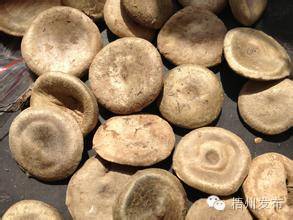 Stramonium (Image from the Internet)
Stramonium (Image from the Internet)
Stramonium, also known as Shi De Ning Shu, Fan Mu Bie, Ku Shi, Ma Qian, Niu Yan, Da Fang Ba, etc., has extremely toxic seeds and is used as a stomach tonic. In TCM, the seeds are processed before use, and they are cold in nature and bitter in taste, with effects of unblocking meridians, dispersing masses, and alleviating swelling and pain. The seeds contain strychnine, and excessive consumption can lead to poisoning, resulting in symptoms such as headache, dizziness, agitation, increased respiration, muscle cramps, difficulty swallowing, respiratory distress, constricted pupils, chest tightness, and typical convulsive symptoms. In severe cases, respiratory muscle rigidity can lead to asphyxiation and death.
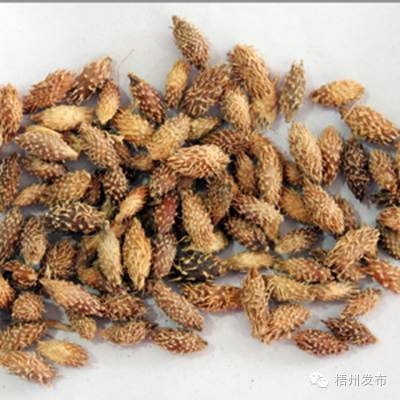 Cang Er Zi (Image from the Internet)
Cang Er Zi (Image from the Internet)
Cang Er Zi, also known as Shi Ma Tou, Cang Er Zi, Lao Cang Zi, Dao Ren Tou, Ci Ba Luo, Cang Lang Zi, Mian Cang Lang Zi, Qiang Zi Luo Zi, Qing Ji Zi, Qiang Zi, Chi Tou Po, Hu Cang Zi, Ye Qie, Zhu Er, Cai Er, and Cang Cang Zi, is commonly used in traditional Chinese medicine and has effects of dispelling wind, eliminating dampness, and unblocking orifices. It is not suitable for those with blood deficiency headaches, and excessive consumption can lead to poisoning. Dr. Xu states that Cang Er Zi has a heat-clearing and detoxifying effect, commonly used to treat rhinitis and skin diseases, and its toxicity is relatively low. When used with Gan Cao, it can help with detoxification.
In addition, certain toxic insects like centipedes and scorpions, which have some medicinal value, are also used by citizens for infusing medicinal liquor.
Dr. Xu advises that if one intends to use toxic or unclear toxicity Chinese herbal materials for infusing medicinal liquor or for medicinal purposes, they should consult a professional pharmacist regarding the properties and dosages, and not blindly prepare medicinal concoctions. “The effects of medicinal liquor vary from person to person; for those with physical weakness or kidney deficiency, it is not advisable to consume medicinal liquor. Since medicinal liquor is warming, and with the current hot weather, consumption should also be moderated,” Dr. Xu adds. Text: Liang Lizhi Images: From the Internet



